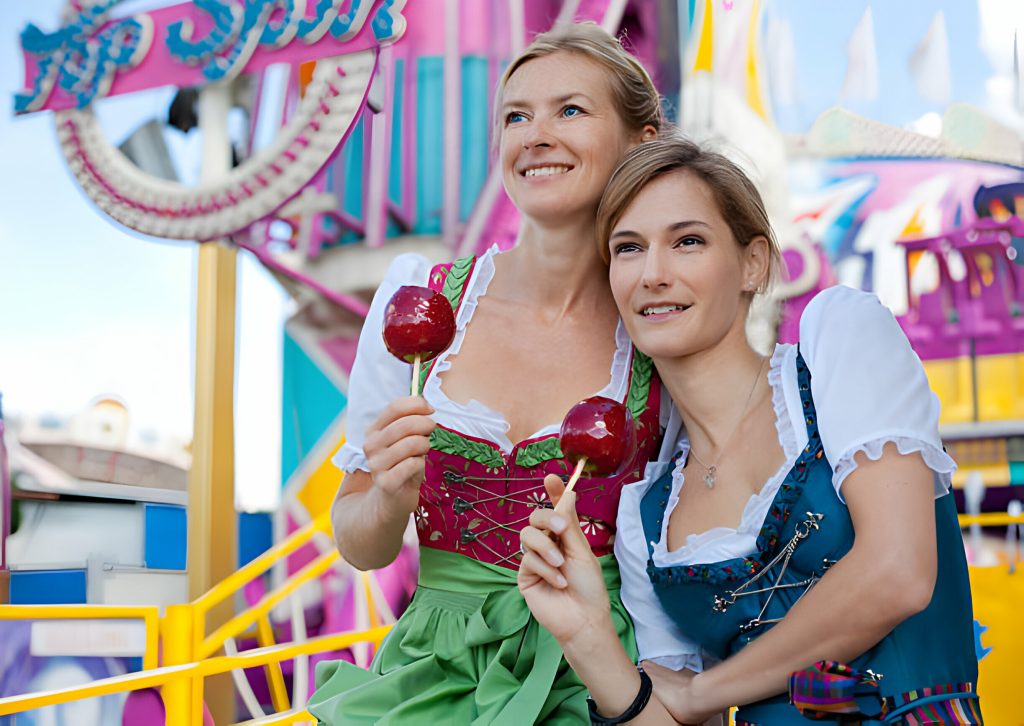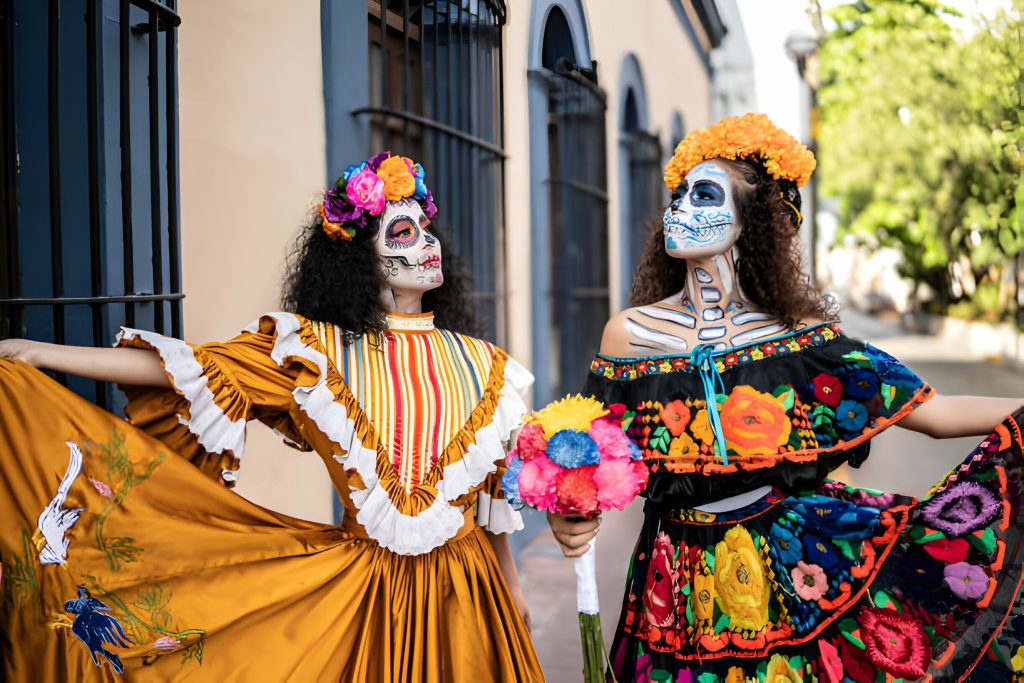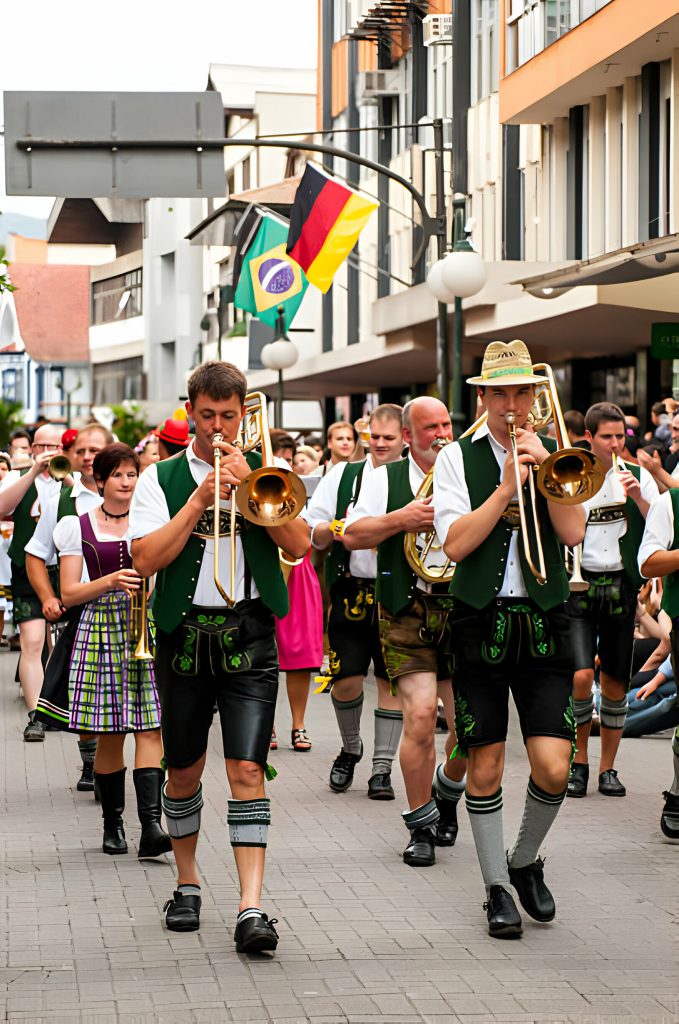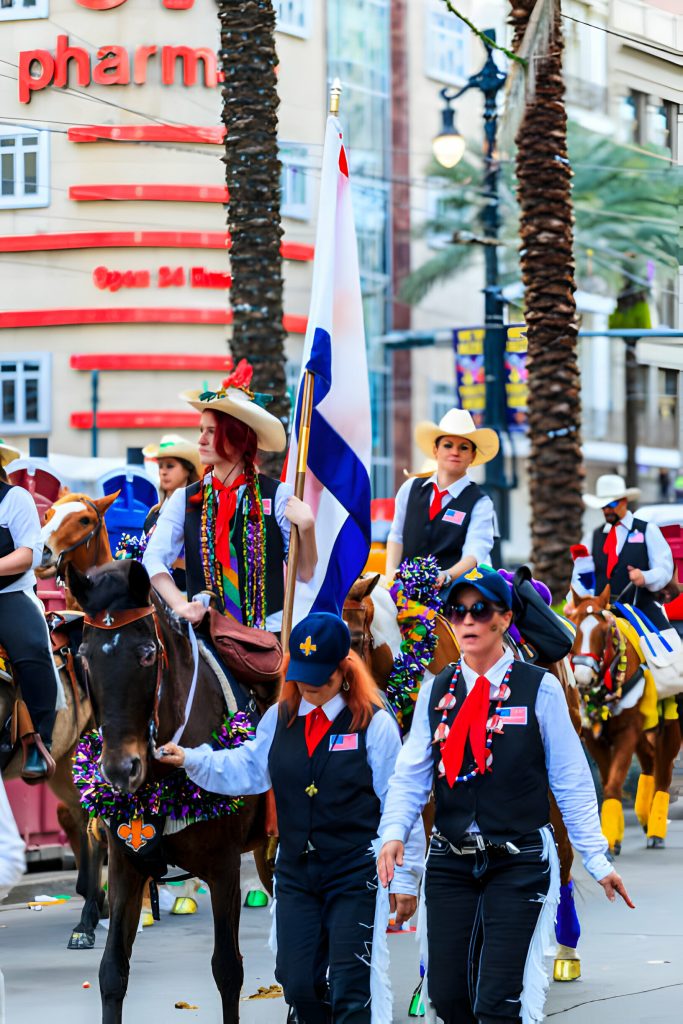Origin Of Mardi Gras
The history of Mardi Gras can be traced back to the medieval Europe. At that time, it emerged as a festival for Christians preceding the unhappy period of Lent. In French, it is translated as “Fat Tuesday.” It represents a final indulgence before the onset of Lenten reflection and fasting. In the 17th century, French settlers introduced this festival to the New World. To be accurate, this was a festival that found its cultural and spiritual home in the city of New Orleans, Louisiana.
Origin Of Oktoberfest
In contrast, the history of the Oktoberfest festival dates back to 1810. The first Oktoberfest was celebrated in Munich, Bavaria. What started as a tribute to the wedding ceremony of Bavarian Crown Prince Ludwig to the princess. Quickly, this one-time celebration evolved into an annual festival that pays homage to the hospitality and Bavarian culture. These days, Oktoberfest has expanded beyond its original purpose, but it remains deeply confined to Bavarian heritage. Apart from that, it serves as an embodiment of traditional music, Bavarian cuisine, and obviously the Oktoberfest beer.
Atmosphere Of Festival And Celebrations


Both of these events grab massive audiences from all over the world. Among the attendees are primarily cultural explorers and enthusiasts who travel to countries to explore exciting insights.
- Mardi Gras: Clearly put, Mardi Gras is an event that is synonymous with the elaborate costumes, parades, and musical rhythms of jazz music. At the time of this fun celebration, you will find the streets of New Orleans alive with vibrant hues as the attendees and explorers from all over the world wear masks and don attire to join in the festivities and merriment. Floats decorated with stunning decorations wind their way throughout the city. Besides the colorful and attractive decor, it features dance troupes and marching bands that elevate the magical scene further. To add more, it also creates a spectacle unlike any other.
- Oktoberfest: On the other hand, Oktoberfest is the largest beer festival in the world, and it was initially celebrated in front of the city gates of Munich, Germany. It transforms Munich into an enchanting and enjoyable celebration featuring fairgrounds, folk music, beer hubs, and lively entertainment. Huge beer halls dot the festival grounds, where attendees congregate to drink a variety of Bavarian brews served in traditional steins. Oompah bands provide a vibrant soundtrack, and guests savor a full meal of sausages, pretzels, and schnitzel.
Global Acceptance

The fun vibe, natural essence, and overall experience have made these events globally accepted. Yes! You read it right. Both of these are events that are enjoyed by millions of people from all over the world, irrespective of country, age, and gender.
- Mardi Gras: Mardi Gras is more than simply a carnival in New Orleans; it’s a deeply embedded cultural tradition that shapes the city’s identity. Millions of people travel from all over the world to attend the yearly event. This factor significantly boosts the local economy and showcases the city’s resilient character and rich history.
- Oktoberfest: Similar to how Oktoberfest has spread beyond its Bavarian roots, it is now a worldwide event that is enjoyed in places all over the world. Oktoberfest-inspired activities span from Munich to Melbourne. They attract large crowds of beer tents and cultural experts who are excited to join in the fun and toast to the warmth of Bavarian hospitality.
Timing And Decorations

The timing and stunning decor vary significantly for both of the events. Upon comparison, you can find out that the Mardi Gras is a short celebration. To put it clearly, both of these events offer an authentic experience to the locals as well as international explorers.
- Mardi Gras: Mardi Gras is a short celebration that usually lasts for a few weeks before Fat Tuesday, which is the day before Ash Wednesday. Mardi Gras is the pinnacle of Carnival season. Simply put, it is a concentrated celebration and revelry before the seriousness of Lent sets in.
- Oktoberfest: On the other hand, Oktoberfest lasts for 16–18 days, starting in late September and ending the first weekend in October. Due to the festival’s prolonged duration, guests have plenty of opportunity to fully immerse themselves in Bavarian culture, partake in an abundance of cuisine, beer, and entertainment, and enjoy the joyous mood.
Final Thoughts
In conclusion, Oktoberfest and Mardi Gras both feature joyous celebrations, but they also each have their distinct charm, traditions, and cultural significance. These well-known events, which can be found everywhere, from the lively streets of New Orleans to the beer tents of Munich, bear witness to the diverse range of human ingenuity and friendship. Whether you’re hoisting a stein in Bavaria or donning beads and feathers in the Big Easy, Oktoberfest and Mardi Gras inspire us to embrace tradition, appreciate diversity, and bask in the beauty of shared experiences.
Be a part of one of these at least this year to have an unmatched experience and make unforgettable memories for life.
